The Kenya National Chamber of Commerce & Industry (KNCCI) has formalized a partnership with USAID Western Kenya Sanitation Project that seeks to create a financially sustainable, transformative, replicable and locally owned sanitation and menstrual health management.
In September 2022 USAID-WKSP and KNCCI held a two- day Private Sector Engagement Workshop in Kisumu County, meant to catalyze private sector participation and investment in market-based sanitation and menstrual hygiene management within western Kenya.
The USAID Western Kenya Sanitation Project (WKSP) is a five-year activity to be implemented in eight counties of Busia, Bungoma, Homa Bay, Kakamega, Kisii, Kisumu, Migori and Siaya. These counties have made significant progress towards open-defecation-free (ODF ) status. However, access to basic sanitation remains low. Safe MHM continues to elude women and girls informing the need to improve access to safe MHM products, services and facilities and to counter misinformation and stigma.
The objectives to ensuring the success of the project are;
- Increased access to and uptake of market-based improved sanitation and faecal sludge management (FSM) products and services
- Increased access to and uptake of market-based improved MHM products and services at the household level.
In order to analyze the market system, the target market and the business enabling environment for sanitation and hygiene. WKSP will work with stakeholders and County governments in the respective counties to conduct key foundational assessments, including market system analysis, customer segmentation, governance assessments and political economic analysis that will inform the priorities for the project.
To improve the sanitation market system, the project will ensure to catalyze markets for improved sanitation management focusing on strengthening the supply side of existing sanitation products and services by building the capacity of existing market players to address the containment, emptying, transfer and reuse challenges along the sanitation value chain.
To strengthen the enabling environment, the project will draw on the foundational assessments to facilitate county policies that promote market-based sanitation management and market solutions for accessible sanitation and MHM products. Key stakeholders will be involved in every county to establish a technical team for both the County Governments and Non-government representatives to facilitate the drafting of policy documents.
The project will also identify, implement and scale pilots to strengthen the market for MHM products. This will be achieved by using the human-centered and complementary market -based approach to better develop and deliver MHM products and services my focusing on accessibility, acceptability and affordability.
Sanitation is one of the most important aspects of community well-being because it protects human health, extends life spans, and is documented to provide benefits to the economy.
The project agreement was signed by the Chamber President Mr. Richard Ngatia representing the Kenya National Chamber of Commerce & Industry ( KNCCI) and Chief of Party Dr. Paul Orengoh, Ph.D representing USAID Western Kenya Sanitation Project, Kisumu-Kenya
In attendance were KNCCI Nyanza region Director Mr. Paul Ouma ,KNCCI Ag. CEO Mr. Patrick Nyangweso, Trade Research & Policy Manager Ms. Caroline Kosiom , Partnership Manager Ms. Ruth Wadenya and Trade Research & Policy Officer Mr. Fredrick Mukilya.

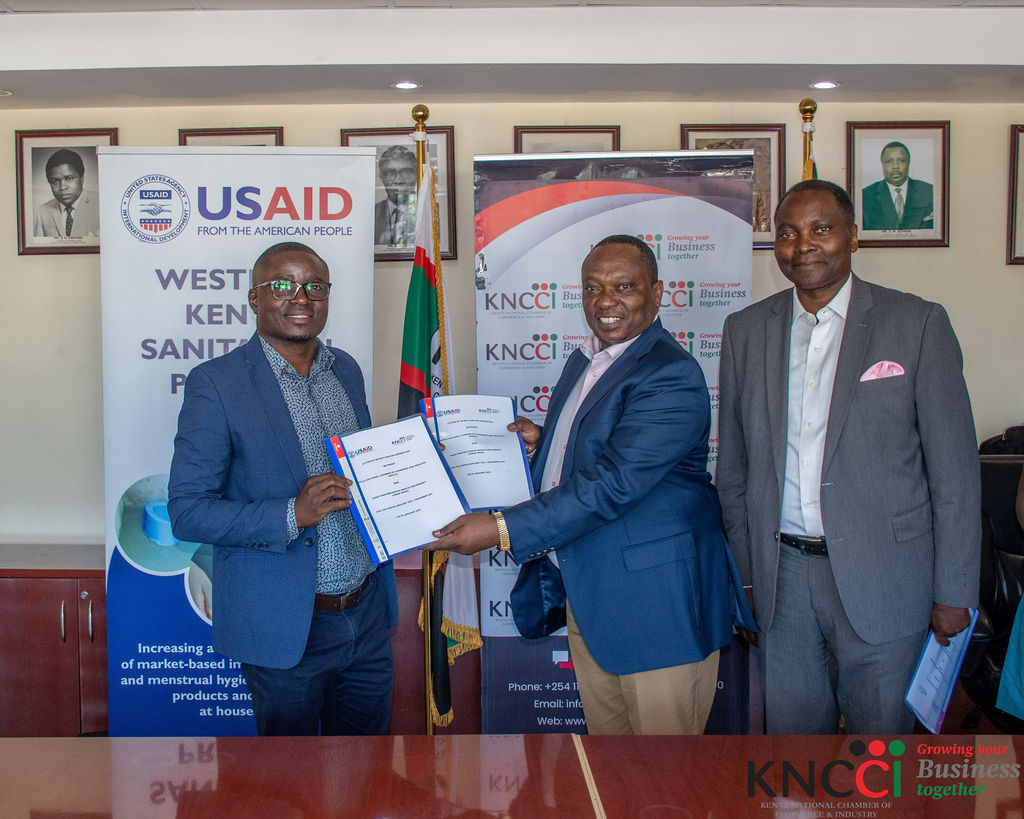
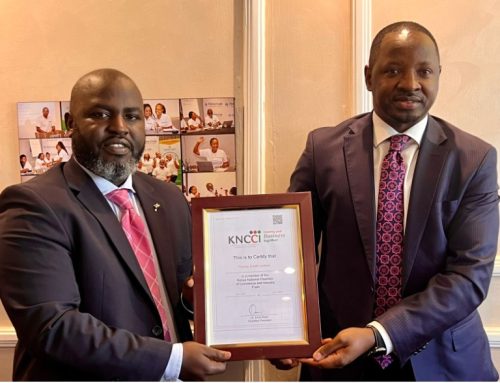
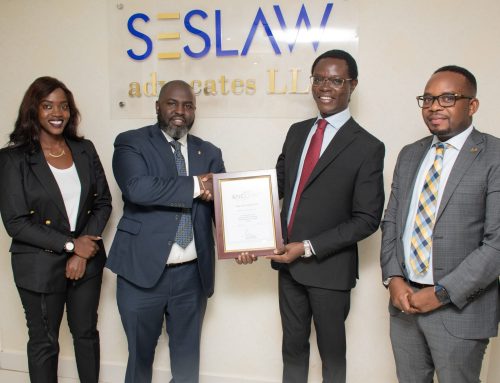
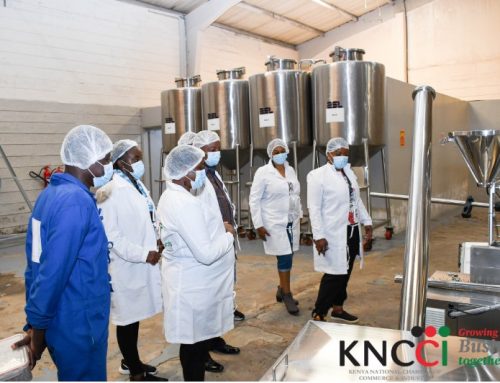
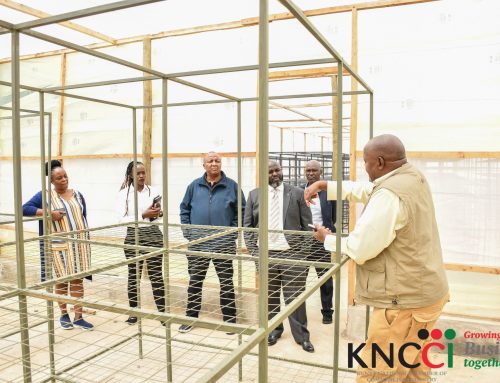
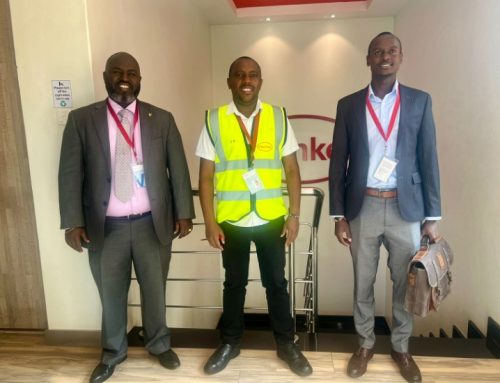
Leave A Comment